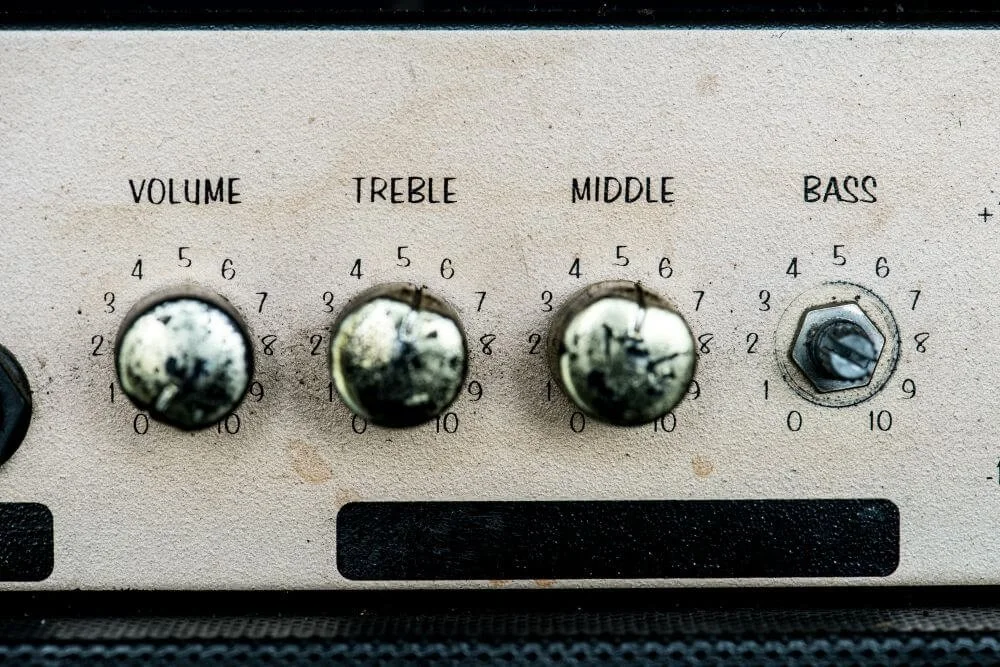Therapy For Anxiety Rooted in Trauma & Attachment Wounds
When the worry never ends, and rest feels impossible.
Learn what’s underneath the anxiety, and make peace with the worry, one thought at a time.
Your mind rarely stops.
Your thoughts spiral, rehearse, rewind, part of an anxious loop trying to keep you safe by keeping you on edge.
You’re treading water, the noise won’t quiet, and you’re trying to keep it all together. But inside your nervous system is depleted from constant overthinking.
And no one notices because you’re so good at looking like you’ve got it all handled but you’re running on low reserves from the chronic stress.
At work, you’re the responsible one.
People think you thrive under pressure. Inside, you’re battling imposter syndrome, internal pressure to be perfect and please others, overanalyzing every email, every conversation, every situation, praying no one realizes you’re just winging it.
You’re drowning in to-do lists. The work never stops. The expectations rarely ease up. Meanwhile, your energy is slipping, rest feels impossible, and your mind won’t shut off long enough to let you breathe.
You keep telling yourself to just push through. But deep down, you’re wondering: What’s the cost of keeping it all together?

Anxiety Feels Like It’s Quietly Taken Over Your Life
But It Didn’t Just Show Up Out of Nowhere
It didn’t show up with flashing lights. It snuck in quietly, over time, shaped by old wounds and attachment patterns that once kept you safe. And now? You’re completely overwhelmed.
What Anxiety Feels Like: Signs and Symptoms to Know
Your brain won’t turn off at night. You’re stuck in a highlight reel of every awkward thing you’ve ever said.
Your mind keeps rehearsing possibilities, a way your body tries to feel safe by staying prepared.
A comment or a look sets off an alarm inside you. You feel triggered before realizing why. Your heart races, putting you on high alert, often a sign of trauma-related anxiety, when the body remembers before the mind does.
Anxiety shows up as a restless energy that won’t let you settle, no matter how hard you try.
Your nervous system revs up without warning, activating all your senses and making it impossible to just breathe and be.
You often feel anxiety in your body first, that fluttering heart, the shallow breath, and muscle tension that makes it hard to relax.
Common Ways Anxiety Manifests in Your Body and Mind
Anxiety doesn’t just show up as worry or restlessness. It lives in your body, the tight chest, the clenched jaw, frozen shoulders, the restless energy that never fully fades. That’s somatic anxiety, your body feeling and experiencing what your thoughts can’t quiet.
It’s the weight you carry through every conversation, every decision, every relationship.
➳ Rest feels wrong. Even when you desperately need a break, guilt crashes in.
➳ Your mind won’t turn off at night, replaying every interaction, every what if.
➳ You feel like an imposter in your own life, despite your accomplishments.
As a Parent: Anxiety Turns Up the Volume
As a deeply intuitive parent with attachment wounds, your role can feel especially overwhelming:
➳ You feel your child’s emotions deeply. Their bad day suddenly feels like your bad day.
➳ You’re terrified of getting it wrong. You try so hard to break cycles, but the fear is always there.
Anxiety can weave itself into perfectionism, people-pleasing, or attachment struggles. You might recognize those threads in Perfectionism, People Pleasing, and Attachment work as well.
This isn’t just stress. And it doesn't have to control your life.
How Anxiety Shows Up in Deep Thinkers & Sensitive Feelers
How Anxiety Plays Out in Relationships
You feel connection deeply, and when anxiety enters the mix, relationships can feel unpredictable. You might chase closeness, pull away, or read distance where none exists.
You don’t just experience life; you absorb it. Every shift in energy, every unspoken emotion, every tiny change in someone’s tone, you feel it all. And that sensitivity, beautiful as it is, can make anxiety feel so much louder.
You scan for danger and safety. One-word texts? Vague responses? Your brain runs wild with worst-case scenarios.
You steer clear of conflict even if it means silencing yourself. You’d rather hold it in than risk creating waves, even when you know your truth deserves space.
You often over-give, apologize, and overextend. Boundaries feel risky like they may push people away. These are classic signs of attachment anxiety, the kind that keeps you seeking reassurance even in safe relationships.
At times, you may pull away from closeness, feeling trapped by others’ need for more of it. That push-and-pull between closeness and distance is how old attachment patterns protect you from loss or rejection.
This anxiety isn’t just an emotional experience; it’s woven into your nervous system’s response to past hurts. A loop that once kept you safe, now simply feels impossible to quiet.
“You can't stop the waves, but you can learn to surf.”
Jon Kabat-Zinn
Your Nervous System Is Tired of Holding the Whole Story
Anxiety isn’t just a story your mind tells; it’s stored your body and deeply held within your nervous system.
That’s why my trauma-informed, attachment-focused approach blends process-oriented therapy with nervous system regulation and somatic techniques to help you calm both body and mind.
For years, anxiety helped you.
It kept you prepared, kept you one step ahead. But now it’s keeping you from actually living.
The same patterns that once protected you are now draining you. And you don’t want to just manage anxiety; you want to understand it, heal it, and live with a regulated body and a clearer mind.
➳ When anxiety traces back to early experiences, we’ll explore childhood trauma and the protective patterns your system learned along the way. Read more here.
How Anxiety Therapy Can Help
Healing from anxiety starts in your body when your nervous system begins to calm.
It unfolds slowly, through small, quiet moments that build over time. You start to notice subtle shifts, a little more space, a hint of hope, and life starts to feel begins to feel different with more hopeful and possibility.
You sleep through the night, no more late-night anxiety spirals.
You say no without guilt or fear of losing connection.
Conversations stop replaying in your mind; the overanalyzing begins to quiet.
Relationships feel more mutual, secure, and safe.
There’s a sense of lightness, calm, and presence in your days.
Even when life feels unpredictable, you find your balance again.
And slowly, trust returns, trust in yourself, in others, and in life.
Healing from anxiety doesn’t mean you never worry again. It means your body no longer lives in overdrive, and your mind no longer tries to predict every possible outcome.
It means having the space to breathe, think, and choose, instead of react.
What Healing from Anxiety Really Feels Like
As a trauma therapist specializing in anxiety, trauma, and attachment, I integrate nervous system work to help you feel calm and clearer-minded again.
You’ll learn tools for emotional regulation, ways to soothe your nervous system and ease spiraling thoughts. No more endless loops; just grounded, effective ways to feel lighter and more in control.
We’ll quiet the inner noise so your brain stops feeling like the enemy, and you can finally work with it instead of against it.
We’ll look at the stories your mind keeps telling, the ones anxiety still believes, and make room for new meaning, change, and kindness within.
And your attachment wounds and past experiences fueling your anxiety start to heal, peace starts to take root. Therapy for anxiety isn’t just about coping; it’s about real healing, the kind that reaches both mind and body.
You’ve spent a long time trying to outthink your anxiety.
As your body learns calm, your brain stops defaulting to fear. You begin to unlearn the belief that calm means danger, that everything safe must be temporary.
And as your mind starts to trust that calm, life stops feeling like something to manage and starts feeling like something you can actually live, with a regulated body and a clearer mind.
This isn’t just wishful thinking. It’s the beginning of feeling like yourself again.
FAQ: Anxiety Therapy in San Antonio
-
Most anxiety treatment focuses only on thoughts but anxiety also lives in your body and nervous system.
My approach blends somatic (body-based) techniques with trauma and attachment healing, so we’re not just managing symptoms. We’re rewiring the patterns that fuel them.
-
You’re not alone. Many people’s anxiety is deeply rooted in early experiences. We’ll explore how old attachment wounds or childhood trauma shaped your nervous system and gently create new ways to feel calm, and connected. You don’t have to relive everything to heal.
-
Yes! Many of my clients come to me after feeling stuck with traditional approaches. By working directly with both your thoughts and your body’s survival responses, we unlock change where “just talking” often can’t reach. This can make all the difference.
-
No and yes. Everyday stress and work burnout are very real and challenging experiences. While I deeply respect how hard it can be to manage those feelings, my work focuses specifically on anxiety that is rooted in deeper, often unconscious patterns connected to past relational wounds or trauma.
If your anxiety is primarily linked to current life stressors without a trauma or attachment history, you would benefit from other supports or therapists who specialize in stress management or workplace burnout.
If you’re noticing that your anxiety feels like more than just surface-level stress or general work burnout,and the emotional burnout feels tied to early experiences or recurring patterns that keep you stuck, I can help as this could be attachment related.
Also, if your emotional burnout feels tied to compassion fatigue and/or vicarious trauma due to your work as a therapist or healthcare provider, I can absolutely help you explore and heal these deeper roots.
-
Not all trauma comes from childhood, and trauma doesn’t always look like the stories we expect. You may not have experienced what feels like a “bad childhood,” but you might still carry trauma from other parts of your life, whether it’s adult relational wounds, reproductive trauma, medical trauma, sexual trauma, religious trauma, losses, or other experiences that impact your nervous system and how you relate to yourself and others.
My work focuses on healing anxiety that is rooted in these kinds of deeper, often hidden wounds. If your anxiety feels more like everyday stress or work burnout without a trauma history, my approach may not be the best fit but I’m happy to refer you to support that might be more helpful for your current needs.
-
Sometimes trauma isn’t obvious. It doesn’t have to be a single, dramatic event. Many people carry wounds from experiences that may feel subtle or even invisible, like emotional neglect, repeated dismissals, or early attachment disruptions. These experiences can deeply shape how anxiety and attachment patterns show up in your life.
My work focuses on healing those underlying, often unrecognized, wounds that impact your nervous system and relationships. If you don’t identify with having trauma at all, or feel your anxiety comes solely from other sources, my approach might not be the best fit. But if you’re open to exploring how past experiences may be influencing your present, anxiety and attachment therapy can offer profound healing and relief.
You deserve more than just tips to “manage” anxiety.
Together, let’s calm the noise, soothe your nervous system, and heal the roots of your anxiety.
Schedule a complimentary consultation for anxiety and attachment therapy in San Antonio today.
➳ Prefer meeting online? I work with clients across Texas.

Ready to Get Started?
Let’s Work Together






